Nothing delivers unrequested adventures quite like normalization of deviance. It works like this:
Suppose one has a safety protocol. Suppose one decides that this protocol is onerous for some reason: it consumes extra time, it requires extra effort, or worst of all, it costs money. So, one shaves a step here and a precaution there. And nothing happens! Clearly, the whole shebang was not necessary in the first place. Clearly the thing to do here is to keep skipping steps until circumstances line up wrong and you’re looking at a trip to the emergency room or a burning pile of expensive rubble.
The end results of normalization of deviance are undesirable in reality. But…the process is oh-so-irresistible for authors looking for ways to drop their characters neck-deep in a pig lagoon. Take these five examples:
The Haunting of Hill House by Shirley Jackson (1959)
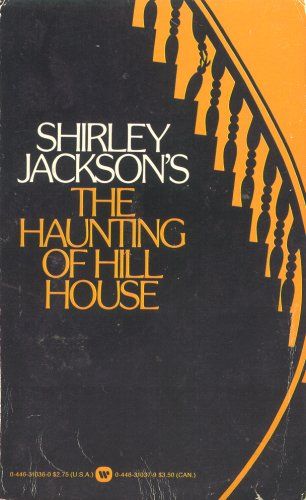
Precisely what makes Hill House so remarkable is a matter of debate. Perhaps it is the odd architecture that disorients and confuses. Perhaps its bloody history has left the building psychically tainted. Perhaps it is home to one or more honest-to-god ghosts. Those who have tried to live in the cursed mansion agree that there is one safe way to deal with the place: a swift exit and an unshakeable determination to never, ever return. Thus far this solution has proved fully efficacious.
What is for most people a psychic Superfund site that should be shunned is a glorious opportunity for Dr. John Montague. He’s going to study the notorious haunted house up close and personal, supported by a hand-picked team of purported psychics. His study of Hill House may settle the long-vexing question: Are paranormal phenomena real? If the initial foray produces disquieting results, that’s all the more reason to do what his predecessors were too cautious to do: remain and push a little harder at whatever it is that makes Hill House so eerie and foreboding.
Any survivors will learn just how costly hubris can be.
* * *
The Far Call by Gordon R. Dickson (1973)
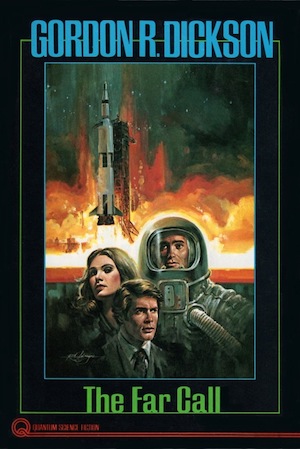
Putting the first team of humans on Mars is far too important a goal to allow small-minded folk to hobble the project with petty concerns about things like workloads and equipment tolerances. Surely margins of safety can always be trimmed a bit; one can always squeeze out a little more labour given sufficient suasion; equipment specs are but mere guidelines, after all…
Would-be whistleblowers like Undersecretary for the Development of Space Jens Wylie are fuddy-duddy naysayers who don’t understand that anything can be accomplished (regardless of guidelines and specs) if there is sufficient will.
It all works until it does not work. Communications failure sets off an avalanche of calamities as bad luck collides with poor judgement. One astronaut is killed by a solar flare while carrying out repairs. His companions soon realize they may no longer have the equipment they need to salvage the mission. Indeed, survival itself is in question. At least they still have the means to return five astronauts to Earth. It’s a shame that there are six of them…
* * *
The Prometheus Crisis by Thomas N. Scortia & Frank M. Robinson (1975)
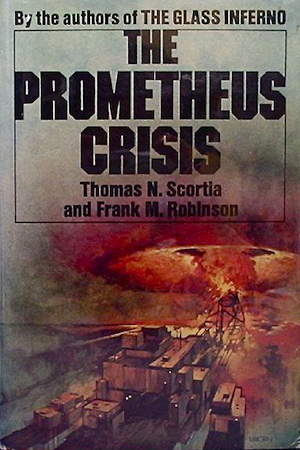
The twelve thousand-megawatt Cardenas Bay Nuclear Facility will be the largest nuclear reactor complex on the planet, once it is up and running. The project has been plagued with delays and mishaps. General Manager Parks, obsessed with irrelevancies like “proper procedure,” wants even further delay to hunt down all of the bugs before the facility comes online. It is unlikely he will get his way in the face of political pressure from the Oval Office itself.
Politically adept people innocent of Parks’ toxic inhibition rooted in technical expertise point out that none of the issues at Cardenas Bay are original to Cardenas Bay. Every piece of sub-standard equipment, every shoddy practice was pioneered in other nuclear reactors. They never led to a large-scale nuclear disaster before. Why would they now?
It’s a question to which the congressional subcommittee investigating the horrific Cardenas Bay Incident would dearly like to know the answer.
* * *
Alien, directed by Ridley Scott and written by Dan O’Bannon
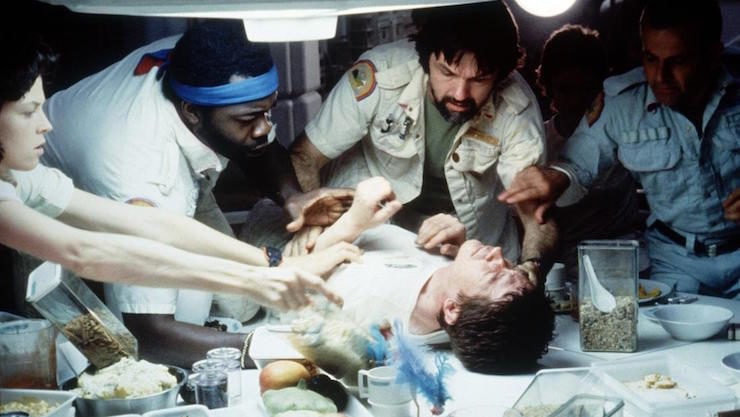
En route to the Solar System, commercial space tug Nostromo detects what seems to be a distress signal. Protocol requires a check. The ship wakes its slumbering crew to investigate further. In short order, they make two intriguing discoveries: first, the signal may have been a warning beacon; and secondly, within the enigmatic ruins of an alien craft there remains at least one lifeform viable enough to latch itself to the face of an insufficiently cautious human.
There are extremely clear-cut protocols for biological contamination, step one of which is not bringing the contaminated person back on board to spread contagion further. Warrant Officer Ripley is determined to follow protocol. Her fellow crewmates, blinded by concern for their ailing friend, shout her down. This proves to be both a fatal error and also the beginning of a long-running franchise about explorers unfamiliar with basic safety procedures.
* * *
Catfishing on Catnet by Naomi Kritzer
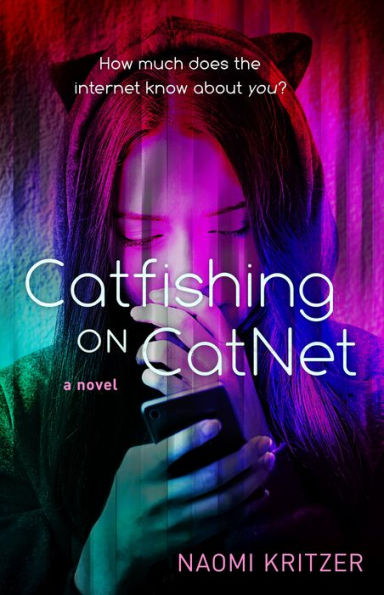
Terrified that her ex-husband will find them, Steph’s mother has dragged Steph from town to town. Forbidden to stay in contact with school chums once mother and daughter have moved on, Steph turns to CatNet, an online forum whose denizens share pictures of cats (and other animals), as her virtual social circle.
Eventually Steph begins to doubt whether her mother’s obsessively complete security measures are necessary. Surely, a little covert investigation cannot hurt? After all, her online activities have had no ill effects thus far.
…Or perhaps her researches will attract the attention of a man who is every bit as bad as Steph’s mother says he is, a glib sociopath determined to hunt down and punish people he regards as his property.
* * *
If there is anything these essays have taught me, it is that for any example that I can think of, the audience can think of ten or twenty more. Have at it in the comments below!
In the words of Wikipedia editor TexasAndroid, prolific book reviewer and perennial Darwin Award nominee James Davis Nicoll is of “questionable notability.” His work has appeared in Publishers Weekly and Romantic Times as well as on his own websites, James Nicoll Reviews and Young People Read Old SFF(where he is assisted by editor Karen Lofstrom and web person Adrienne L. Travis). He is a four-time finalist for the Best Fan Writer Hugo Award and is surprisingly flammable.










